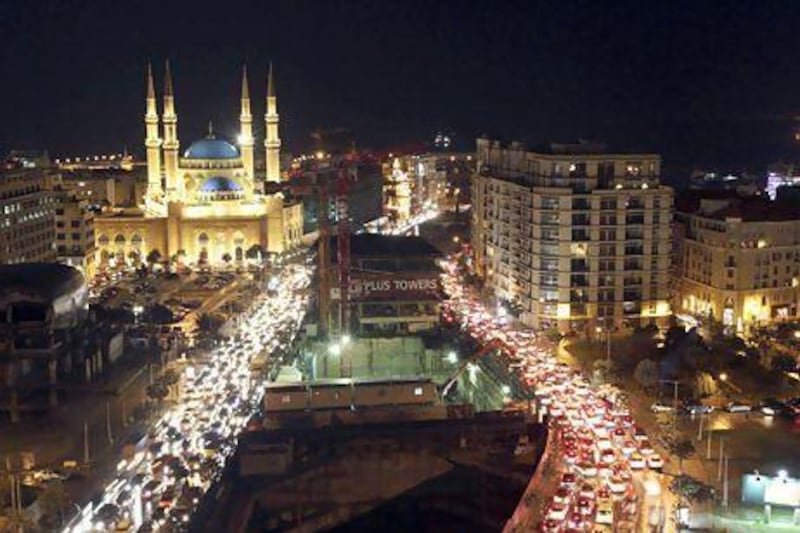My take last week on the detrimental effect Lebanon's smoking ban has had on local business may have been wide of the mark. It appears that not only is law 174 by and large working, but that there is considerable resolve to make it succeed and expose establishments and individuals who violate it.
I still believe, however that, after a disastrous 2012, it was the proverbial straw that broke at least a few vertebrae of the hospitality industry's back. But my default cynicism had blinded me to a wider and encouraging new mood of public activism. In short, our patience for mediocrity is wearing thin.
It is an intangible that has been crucially overlooked by the Heritage Foundation in its recently released 2013 Index of Economic Freedom. It ranked Lebanon 91 out of 177 countries globally and 10th out of the 15 countries it listed in the Middle East and North Africa region. We dropped 0.6 of a point, slipping into the group of "mostly unfree" nations.
I know that things are not looking good at the moment. Lebanon's reputation as a tourist playground has been blown to smithereens by security threats and Arab investors are apparently reassessing Lebanon's place in their portfolio.
Last week it was reported that the Emirati businessman Khalaf Habtoor was considering disposing of his assets in Lebanon, which include two five-star hotels and a small shopping mall in Sin El Fil, on the edge of the capital.
But the Heritage Foundation failed to detect this new zeitgeist. That we are in a slump and the fact that political, local and regional impulses have eclipsed the pressing need to revitalise the economy should not overshadow the fact that, since 2005, the year of the Cedar Revolution and the end of Syrian hegemony, Lebanon has been preparing for change. That it has misfired more than once does not mean the will is not there. One day it will surely prevail.
The political class, one that has changed little in the past 20 years, is walking down an ever-narrowing corridor. There is a segment of the Lebanese population, mainly those under 35, that has travelled, is tech-savvy and significantly more socially engaged than their elders. They understand the power of the new media; they understand the importance of environmental issues and they have identified the ossification of the Lebanese establishment.
They will no longer accept procrastination. They no longer believe politicians when they blame inactivity by citing bigger issues and more powerful forces at work, telling them that they cannot rock the boat. They just don't buy it any more.
There is significant awareness and education about the pressing issues affecting the country. Unlike most Arab countries, we can demand disclosure and transparency. We can insist that a law be enforced and we can criticise our leaders in the media without fear of being shut down, censured or even jailed.
Furthermore our democracy, while not the finished item, is still way more developed than our neighbours. It has had time to mature and evolve. We must not be surprised when we see Egypt's new system spluttering. A country cannot go from autocracy to genuine democracy overnight, however much the people might want it to. And we are dreaming if we think that a post-Assad Syria will wake up to a Utopian dawn. It just isn't going to happen
In this respect, Lebanon has stronger foundations than its neighbours. Not only do we have the human talent, we have a desire and the ability to constantly reinvent ourselves and improve our lot.
I wrote two weeks ago that Lebanon needed a game-changer to take the country into the 21st century, and I will wager that when one arrives the people and the resources are in place to make Lebanon an exciting and genuine hub, hurtling it to the top of the regional charts.
Michael Karam is a writer based in Beirut





